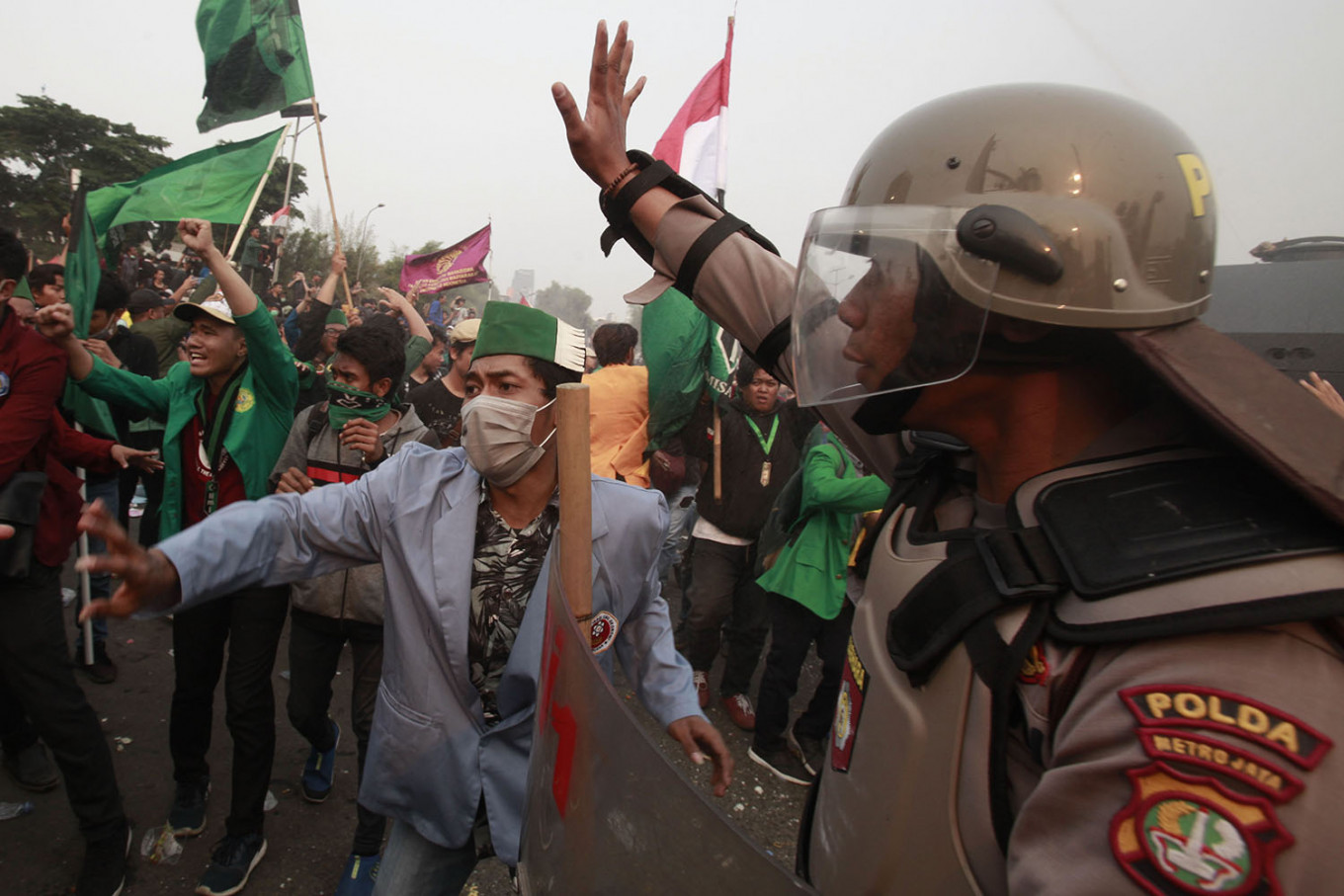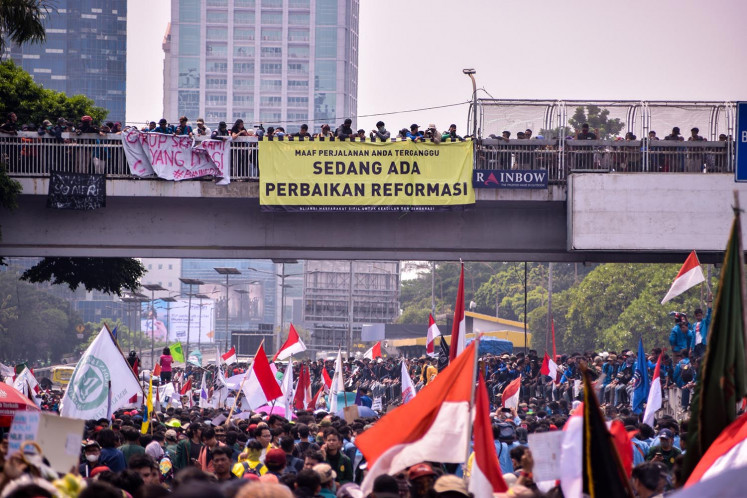Popular Reads
Top Results
Can't find what you're looking for?
View all search resultsPopular Reads
Top Results
Can't find what you're looking for?
View all search results2019 saw rise of new resistance after Indonesia failed to protect rights: Amnesty
Amnesty International, in its report Human Rights in Asia-Pacific: Review of 2019 released on Wednesday, said that setbacks to freedom and human rights occurred in Indonesia and followed a trend emerging across the continent.
Change text size
Gift Premium Articles
to Anyone
T
he year 2019 saw the rise of a new generation of resistance movements in Asia, including in Indonesia, where protests were staged amid the government’s failure to protect human rights and crackdown on freedom of expression, according to Amnesty International's latest report.
The human rights watchdog, in its report Human Rights in Asia-Pacific: Review of 2019 released on Wednesday, said that setbacks to freedom and human rights occurred in Indonesia and followed a trend emerging across the continent. The report was based on Amnesty’s observations in 25 Asian countries.
“2019 was the year of repression and resistance in Asia. When governments across the region attempted to revoke basic freedoms, residents have actually fought back with the young standing on the front line,” Amnesty International East Asia and Pacific regional director Nicholas Beguelin said in a statement made available to The Jakarta Post.
He added that young people led protests on the streets as well as in the online sphere, such as in the prodemocracy protests in Hong Kong and protests in India against a new citizenship law that many believe marginalizes Muslims in the world's largest democracy.
Amnesty International Indonesia director Usman Hamid echoed Beguelin's statement, saying that similar things had also happened in Indonesia.
“Students have taken to the streets to march against a revision to the Corruption Eradication Commission [KPK] Law that weakens the country’s graft fight and discriminatory actions against Papuans,” he said in the joint statement.
Read also: Students lead the way, again
Usman referred to a series of rallies where thousands of university students staged protests against controversial bills in front of the House of Representatives from late September to early October last year.
Protesters used the hashtag #Reformasidikorupsi (Reform corrupted), which became the tagline for nationwide rallies in the country.
A series of protests also broke out in many cities across Papua in August and September last year following the use of racist slurs and discriminatory attacks against Papuan students, who claimed that they were discriminated against by the majority of Indonesians.
Amnesty also highlighted that Indonesian authorities had failed to defend human rights defenders and were responsible for restricting freedom of expression.
According to the watchdog, there were at least 203 criminal charges against those found to have criticized state officials, their spouses or state institutions – either through social media or during protests between October 2014 and March 2019.
The watchdog also highlighted the use of the Criminal Code, particularly provisions on treason, to charge Papuans who protested and demanded a referendum.
“Law enforcers were also allegedly responsible for violating human rights with little to no punishment against those violators. They had used excessive force in handling the protests and during other operations to maintain security and order in some regions,” Usman said.
Read also: Activists say protest supporting Papua not act of treason
Amnesty said some protesters in Jakarta died during the postelection riots from May 21 to 23, 2019, from gunshot wounds that allegedly came from security personnel. Law enforcers also arrested dozens of protesters including minors during the #Reformasidikorupsi rallies, which took place from Sept. 23 to 30, 2019.
Two students participating in a protest on Sept. 26 in Kendari, Southeast Sulawesi, died allegedly due to gunshot wounds.
The police also arrested individuals for rallying calls for the liberation of Papua. Amnesty also found that at least 5,000 residents in Papua were displaced from their homes due to escalating conflicts across Indonesia's easternmost island.
Usman urged authorities to release those detained in Papuan clashes. “This should be followed up by an independent investigation on the defendants as well as other efforts to solve long overdue cases of human rights violations,” he said.











